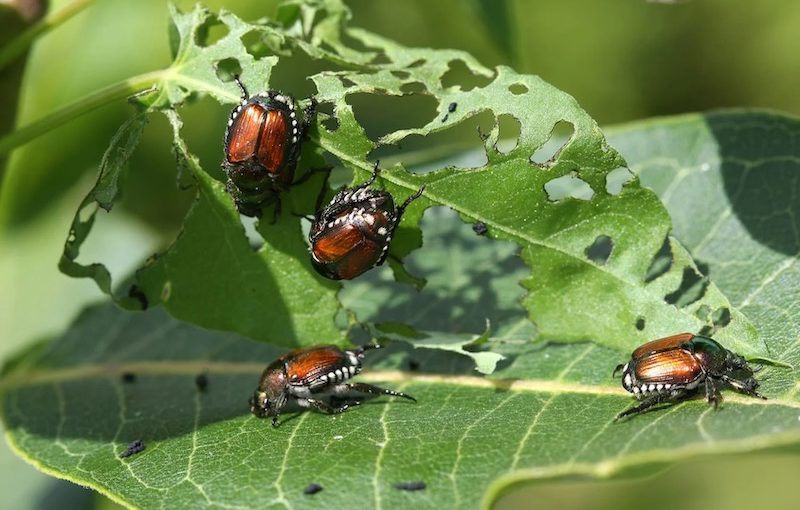You’ve been inspired to grow your own food, started your first garden and get hit with your first obstacle.
Pests.
What do you do? Are there organic alternatives to chemical sprays?
In this article I’ll cover a natural approach to managing insects and pests in your garden that is effective for all types of invaders.
In my experience, this method can also be applied beyond gardening to improving our lives, businesses and relationships.
Let me explain.
A question from a reader
My garden has been overrun by fall army worms and no amount of manually picking them is reducing the problem.
What organic methods do your farmers use to control this pest?
I am considering a Kiwicare pyrethrum spray as it has a short hold-off period and is all natural. I am concerned with toxin levels and would hold off for far longer than the 1 day suggested on the product.
I have also looked at neem oil but I’m not sure how practical it is as there is a huge grass area surrounding my garden.
Any advice would be most welcome.
Dealing with pests is part of the learning journey. I can’t comment on his specific situation because the issue could be for any number of reasons.
Personally, I would not start any chemical route. Firstly, because of the toxicity. Secondly, because it’s fighting a symptom, not the cause.
A holistic approach to organic gardening
Just like in natural medicine, you need to observe and try to determine the root cause of the issue. The issue could be anything from soil ph, compactness, moisture, temperature, types of plants in the garden, source of fertility, how you are digging, composting, mulching, etc, etc.
Natural gardeners don’t see pests as a problem that needs eradication but as feedback to let you know something is out of balance and needs to brought back into equilibrium.
Starting to fight with nature’s feedback instead of listening to what it’s telling us to correct, will start and endless cycle of running to the garden centre to buy product X, Y and Z.
And poisoning yourself.
Even if we use a certified organic product, we will be fighting against nature.
Guess who will win? 🙂
The problem is the solution
My teacher and mentor Bill Mollison – the founder of permaculture – was known for saying “the problem is the solution”.
In other words, if we observe, learn, educate ourselves and change our perspective, we can take the advantage of any problem and be better off for it.
How do we apply this to army worms?
Without even seeing this reader’s garden and soil conditions, we know that clearly there is a lack of predator birds.
Instead of an army worm problem, perhaps he has a duck deficit problem?
On the off-grid Ooooby Farm we have Muscovy ducks. They are silent, produce nutritious eggs and meat and when let into the garden, they will eat all the pests before touching your plants.
Free duck food. Free pest control. Free eggs and meat.
Win. Win. Win.
Free entertainment and education for our kids too!
Gardening as a way of life
What starts as a “pest problem”, becomes a solution that improves your garden, makes you more knowledgeable and saves you money.
It’s deeply satisfying too.
Gardening isn’t just about growing and enjoying food. It’s a journey of learning, mindfulness and continual self-improvement.
The same fundamental skills needed to garden naturally can be applied to health, business, relationships and life in general.
Anyone can Google “fall army worm garden organic” and get some decent tips pretty quickly.
Perhaps even ask ChatGPT for an answer?
But more importantly is to use our army worm “problem” as a opportunity to hone our skills in observation, self-learning, and problem solving.
And get some damn tasty and health-supporting food in the process.
Because if you are going to spend money on pesticides – even organic ones – without understanding why the issue occurs, it would be easier to get organic food delivered to your door.
So enjoy the journey – both in gardening and life – and let me know how you get on in the comments below.


A great article! I love the idea of viewing pests as nature’s feedback system, indicating an imbalance in our gardens. It’s a fresh perspective that aligns with a more sustainable and mindful approach to gardening.
One additional tip I’d like to share is companion planting. Certain plants, like marigolds, can act as natural repellents for pests. Planting them alongside your veggies can help deter unwanted insects. Plus, it adds a burst of colour to your garden! Thanks, Matt